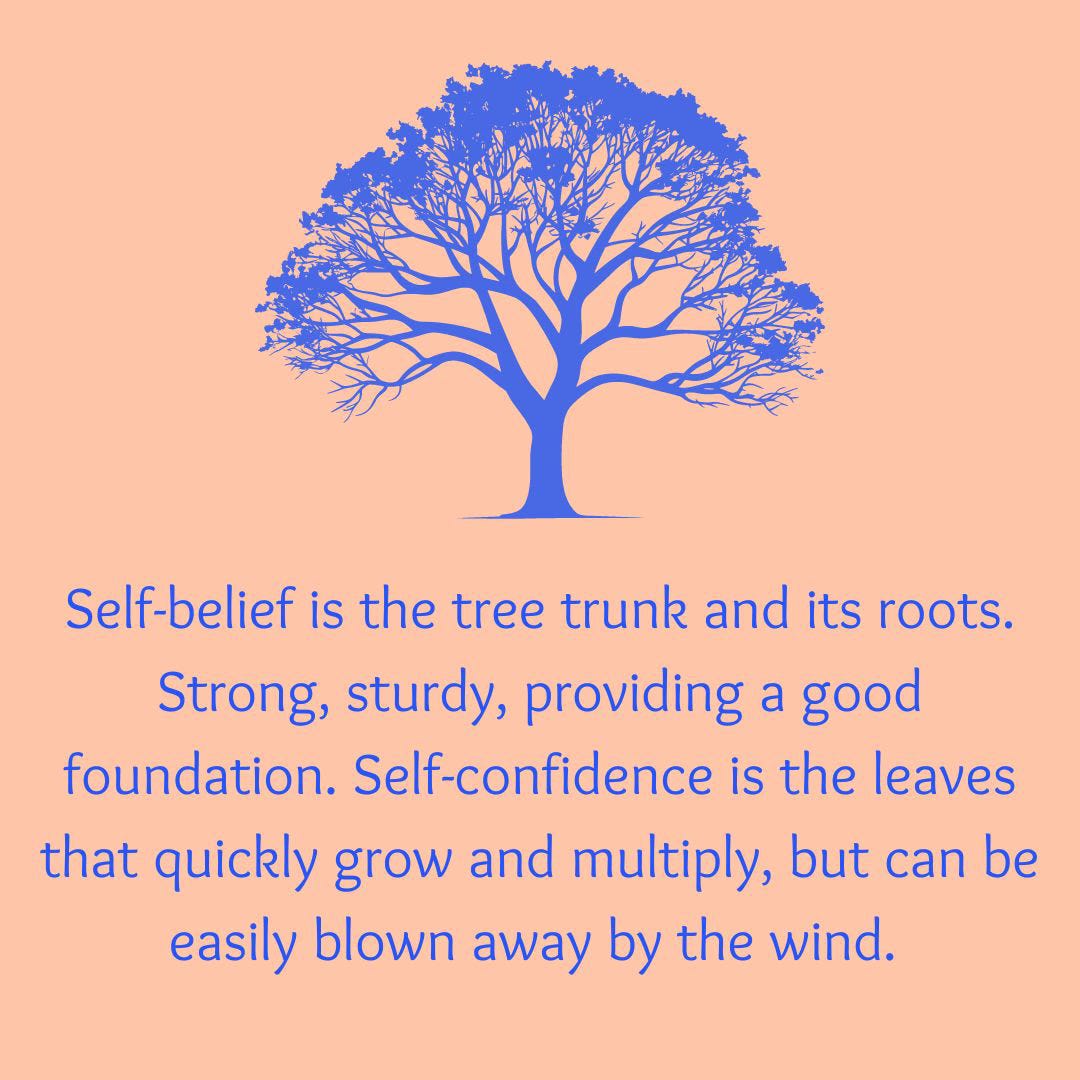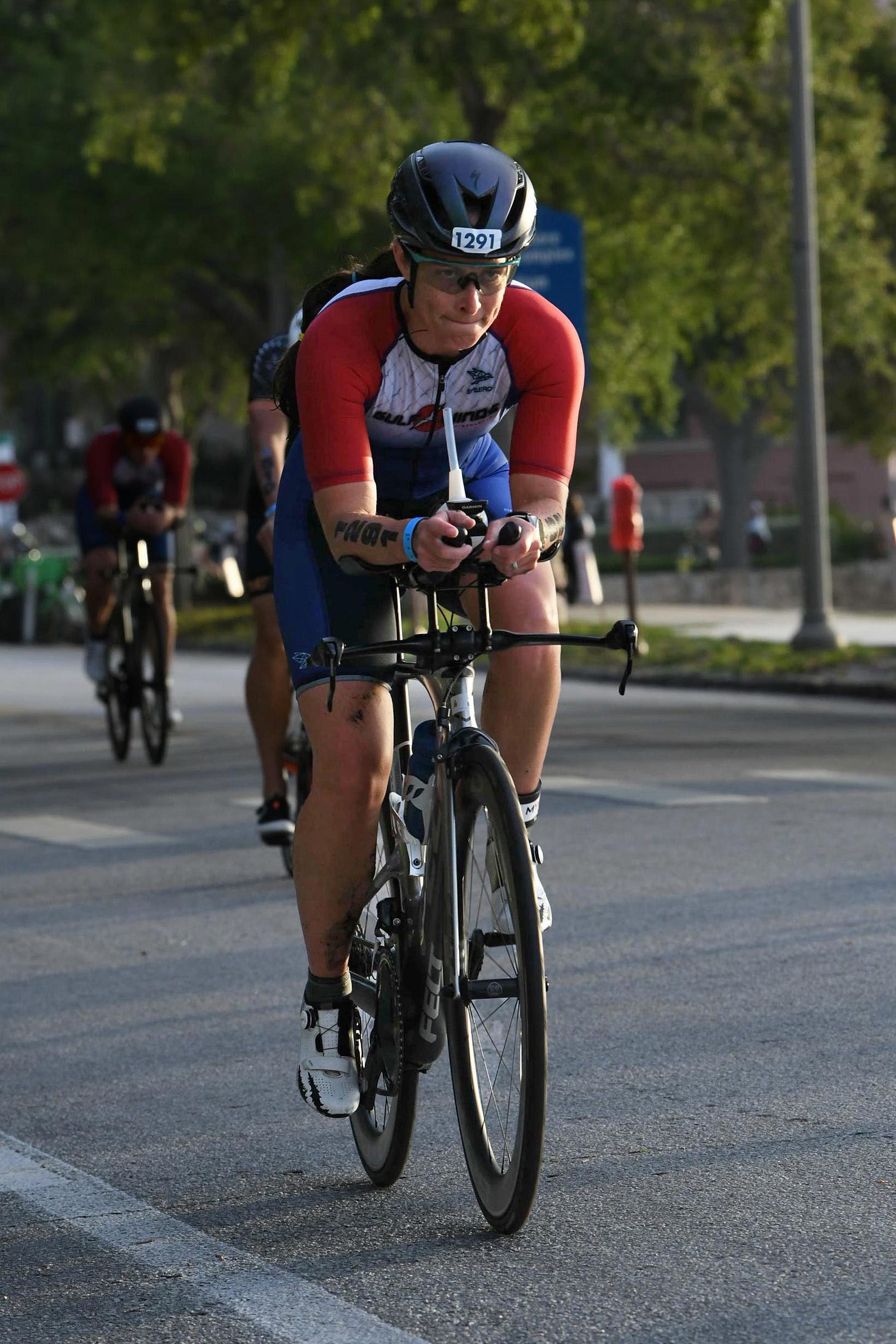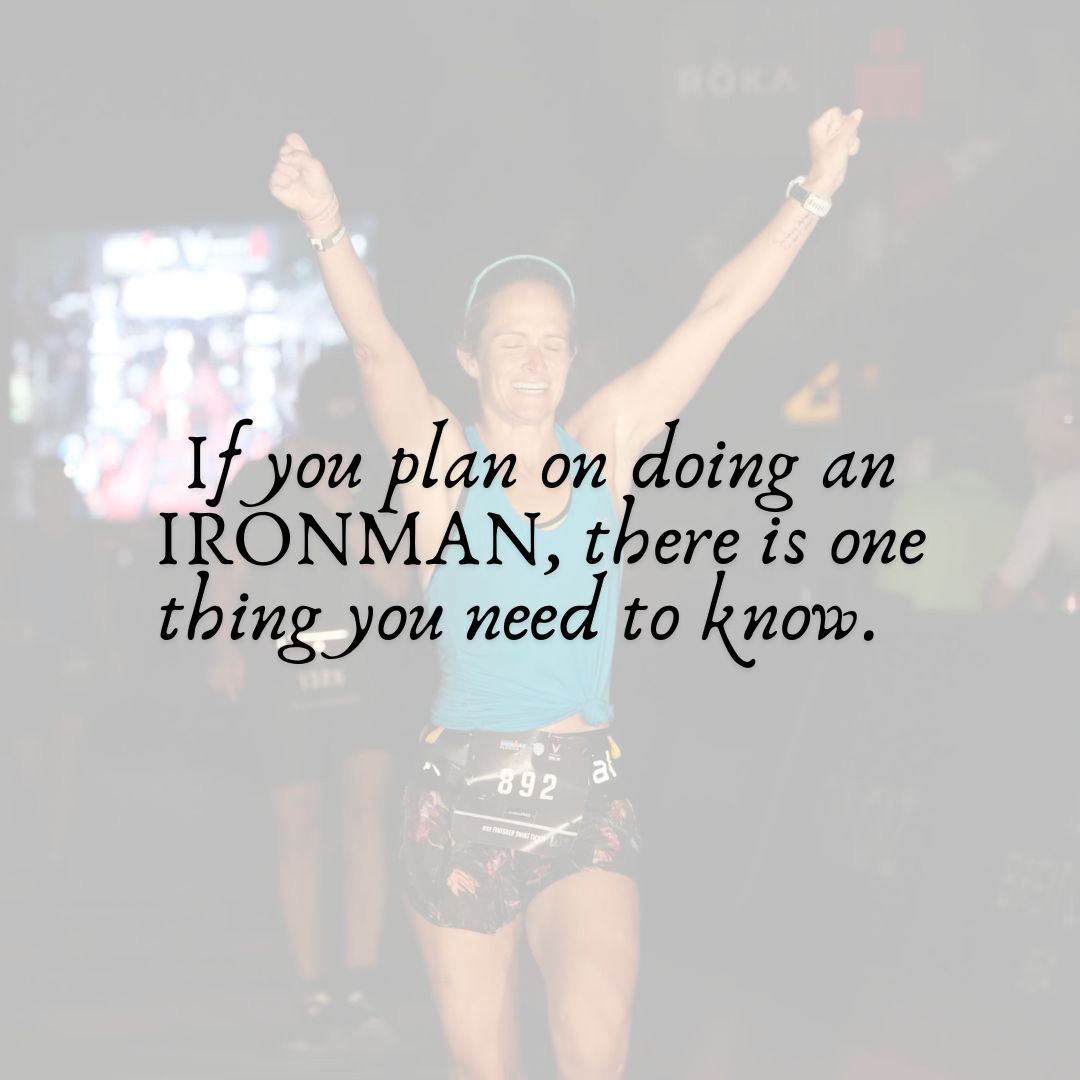Where does self-confidence come from? Are you born with it? If you don’t have it, can you create it? How?
Finding self-confidence sometimes feels like the search for the Holy Grail. It’s this elusive thing that we know would be amazing to have, but we’re not sure how to go about finding it.
It’s Thursday, which means it’s brick day for Matt and I. It was his turn to pick the playlist for our trainer ride this morning, and one of his favorite songs came on- Hope, by the rapper NF.
“If you don’t even believe in you why would you think or expect anybody else that’s around you to?”- NF
Wow. That really makes you think.
But the thing is that self-confidence and self-belief are two different things. While self-confidence is your trust in your abilities and judgement, self-belief is a more deeply-rooted conviction that’s tied to your core values and identity as a person.
Self-belief is not situational confidence.
As a writer, I love a good analogy, and I read an article that likened self-confidence and self-belief to the parts of a tree. Self-belief is the tree trunk and its roots. Strong, sturdy, providing a good foundation. It’s what helps us weather life’s storms. Whereas, self-confidence is the leaves that quickly grow and multiply, but can be easily blown away by the wind.
Self-confidence comes and goes, even for professional athletes. All it takes is a few bad performances, or not being able to hit your marks in training, and all of a sudden you’re not only questioning your abilities, but also your identity as an athlete.
On the other hand, while you might experience some setbacks, if you have strong belief in yourself and your capability to achieve success, then you will be better able to rebound from those setbacks.
Setbacks are just setbacks, nothing more. Setbacks can affect our confidence, but they don’t reflect our worth as a human being.
Confidence doesn't have to be dependent upon our feelings and emotions. For example, let's see how I’m feeling today and that will determine how much confidence I have in my abilities, which will consequently determine how well I’ll perform.
We can actively cultivate self-confidence by training the mind, just like we train the body.
I recently interviewed Mental Game Coach, Georgia Miller, who had some great insights about building self-confidence.
“You can have the greatest physical skills in the world, but if your mind isn’t right, then it’s going to be nearly impossible for those physical abilities to shine through,” Miller says.
4 Ways to Build Self-Confidence
Get out of your comfort zone- “Pushing yourself out of your comfort zone every day is a great way to work on building confidence. I’m not talking about huge things. Maybe it’s signing up for a new class, doing another set at the gym, trying new food, etc. If you feel like you’re pushing yourself in one area of your life, it will lead to pushing yourself in all other areas.”
Own your strengths- “Write out a list of your strengths including physical abilities, past accomplishments, and mental strengths. When you’re aware of your own strengths, it’s easier to give more attention to those and will make it harder to compare yourself to others.”
Use positive self-talk- “How you talk to yourself is big too. If you’re constantly putting yourself down, there’s no way that’s helping you develop confidence to move toward your goals.”
Find a good support system- “Surround yourself with people who push you. Being held accountable and working out with someone is a lot more motivating. You will probably do things that you would've never done by yourself.”
Believing in the process, thinking positively, and focusing on actions instead of results are all strategies we can use to build self-confidence and belief in ourselves as athletes.
I’m a writer and a triathlete, not a sports psychologist, but here are a few things I do to work on confidence and belief.
I think about past workouts or races where I felt strong and had success. By reflecting on the success that I've had in the past, it gives me confidence that I can do it again in the future.
I focus on the process instead of the result. By paying attention to specific actions, like maintaining a certain power number on the bike or keeping my heart rate in a specific range on the run, I direct my energy toward the things I can control.
I reject the concept of perfectionism. This is a hard one for me, but I’m trying to accept that everything doesn’t have to be perfect all the time. Also, I don’t need to please other people, and I don’t need validation from others to tell me how I should feel about my performance.
“Whether you think you can or whether you think you can’t, you’re right.”
- Henry Ford
But there’s something I haven’t mentioned yet. All this self-confidence, self-belief, and self-esteem is great, but sometimes the “self”part isn't enough and you need help from an outside source.
Self-confidence can come from knowing that the people closest to you will still feel the same, regardless of the outcome of a race or a performance. In this way, the people who love us can provide a safety net for when our “self” is having a bad day.
For example, when my workout has a note from my coach saying, “This can be a tough one, but you’re totally capable of doing it.”
My first thought is, “Craaaap… This is going to hurt.” My second thought is, “Wow. She believes in me!”
It’s like something my friend said the other day. “I want to be the kind of athlete that my coach thinks I am.”
Self belief is important, but it certainly doesn’t hurt to know that someone else out there believes in you too.
In case you need to hear this today: I believe in you.
"You couldn't possibly believe in me. You don't even know me!" you might say.
That's true, I might not know you, but I do know something about you.
I know that you're reading this post about ways to improve confidence and belief, and that's all I really need to know.
The Other Blog Post This Week:
The One Thing You Need to Do an Ironman… Or Face Any Other Challenge in Life
Excerpt: “No one casually does an Ironman, although some people might say that… There’s hard work, commitment, and sacrifice, so think about why you chose this.
Figure out your why and make it something you can hold on to. You need to dig deep and do some soul searching.
When your body breaks and your mind takes over, you can let it ruin your race or you can let it give you that extra bit of gas you didn’t think you had.”
This amazing quote isn’t my own. It came from my friend, Robin Barth, a triathlon coach I interviewed for an article in Triathlete Mag.
Click here to read the post about finding your why.
What I’ve been up to lately:
Writing:
From Dog-Sledding to Ultras: How Signe Ulsamer Fell In Love with Trail Running for Outside Run (This was super fun to write because it’s about a good friend!)
What’s Your Taper Week Personality? for Triathlete Mag. Are you a Super Scrubber or a Big Lebowski?
One Thing Every Female Runner Should Ask Her Doctor for Outside Run (A very personal piece, because I had iron deficiency anemia when I first started triathlon in 2019. Did you know that 1/3rd of female endurance athletes have some level of iron deficiency?)
Podcast Interview:
I was invited to go on my friend’s podcast to talk about mental resilience in triathlon. Ciara Stockland and her daughter, Bella, were the first mother-daughter duo to compete at Kona together in 2023. She’s really fun and incredibly positive.
Triathlon:
Matt and I recently competed at St. Anthony’s Olympic. It was his first race back after an injury in late 2023. So excited he got a bike PR and run PR and placed 20th in his age group! I was 5th in my AG.
We did the Dunedin Sprint a few weeks ago, which turned into a duathlon thanks to a cancelled swim. One of the hardest races ever with crazy wind and a sandy trail run! 2nd AG and top 10 overall for Matt and 2nd AG and top 10 female for me.
Up next we have the Monticello Kiwanis Club 5K Watermelon Run (I love watermelon) and my birthday next week!
Then, it’s on to Freedom Springs Triathlon on July 4th (ugh, not my favorite race) and then St. Augustine Olympic the end of July.
News and Notes:
Ironman has a podcast? Hosted by Matt Lieto, the podcast will “give audiences unique perspectives and fly-on-the-wall access to unfiltered conversations about the topics that matter most.” The first episode is with World Champion Sam Laidow and the second is with Lucy Charles-Barclay.
On June 11th, the Netflix docuseries “Tour de France: Unchained” is back for a second season. Matt and I loved watching the first season.
9 female athletes have been made into Barbies. One is paratriathlete, Susana Rodriguez, who was born with albinism and is blind. She won a gold medal in paratriathlon for Spain at the Tokyo Olympics, she’s a physician, and was featured on the cover of Time Magazine.
CTS has a great blog. I recently read this one- a sports psychologist’s 7 Tips for Overcoming Triathlon Nerves.
Another one from Better Triathlete on Rethinking Race Priorities: The Decline of the B Race in Endurance Sports.
Thanks for reading the first Triple Threat Life newsletter! I’m new to this format so still figuring things out.
If you liked this post, please share with someone who might enjoying reading it.








